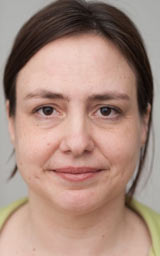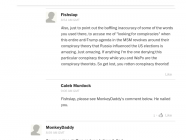 Daniela Kraus of Medienhaus Wien discusses media accountability, media ethics and innovations in Austrian journalism.
Daniela Kraus of Medienhaus Wien discusses media accountability, media ethics and innovations in Austrian journalism.
Q: Are there successful examples of media accountability in Austria?
It would be easier to mention examples that have failed. In Austria, there hasn’t been a press council since 2002. These are really exceptional circumstances, whereas a new “press council” is being founded at the moment. In general, there is hardly any media journalism in Austria in the ‘old media’ and hardly any discourse about media and journalism.
However, postings in the media coverage section on the Internet are working quite well. Derstandard.at has quite lively media coverage, actually the only extensive, noteworthy variety in Austria. There many discussions are taking place. As comments can be posted anonymously, their standards – however – are often questionable.
Q:Do you believe media ethics are jeopardized by online journalism?
Not at all through online journalism. I believe one should differentiate between journalism and non-journalism, but not between the different channels. In journalism the same principles should be adhered to. However, of course, there are many new problems arising from the Internet environment as there are no ethical standards for user generated content and its usage in online journalism.
What has been one of the most important innovations in journalism in Austria in the recent past?
Above all, the (to some extent successful) effort of the interaction between print and online. I would also see the development of online journalism in general positively as it has been developed further from just copy and paste to independent formats. Another innovation is the academic education available for journalists that didn’t exist at all until 2002. It was established in media houses and now there are more people who don’t just come from a certain area of expertise, but actually have sound media knowledge. Therefore – one hopes – they have a more reflected access to what they are doing.
Interview by Tina Bettles
Tags: Austrian Journalism, Daniela Kraus, Media Accountability, Media ethics, MediaAct, Medienhaus Wien, New media











































